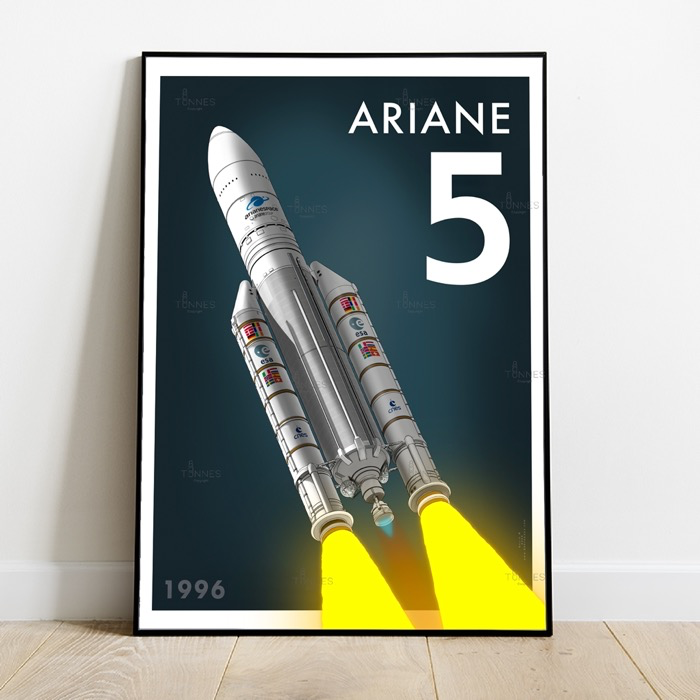









Ariane 5 is a former heavy space launcher of the European Space Agency (ESA), designed to place satellites in geostationary orbit and heavy loads in low orbit. It made its first flight on June 4, 1996 and the last on July 5, 2023. Ariane 5 replaced Ariane 4, which had become obsolete in the face of the increase in the mass of telecommunications satellites. Despite its domination of the launch market until the end of the 2010s, Ariane 5 faced competition from less expensive launchers like the Falcon 9. The ESA therefore decided to replace it with Ariane 6, more modular and less expensive.
Ariane 5, mainly built by Airbus and Safran, is equipped with a cryogenic first stage powered by a Vulcain engine and two solid propellant thrusters. The second stage varies between versions, using either an Aestus or HM-7B engine. It is launched from the Guiana Space Center in Kourou.
The ESA, created in 1975, entrusted the development of Ariane rockets to the French CNES to support an ambitious space policy. Ariane 1 flew successfully in 1981, followed by more powerful versions to accommodate the growth in satellite mass. Ariane 5 was developed for even heavier loads, particularly after the abandonment of the Hermès space shuttle project. The launcher had a difficult start, but became a leader in the commercial satellite market before being gradually replaced by Ariane 6 from 2023.
Data sheet
| Dimensions | A2 (16,5 in × 23,4 in) |
|---|---|
| Paper | Matte 135 g/m² |
Specific References
No customer reviews for the moment.